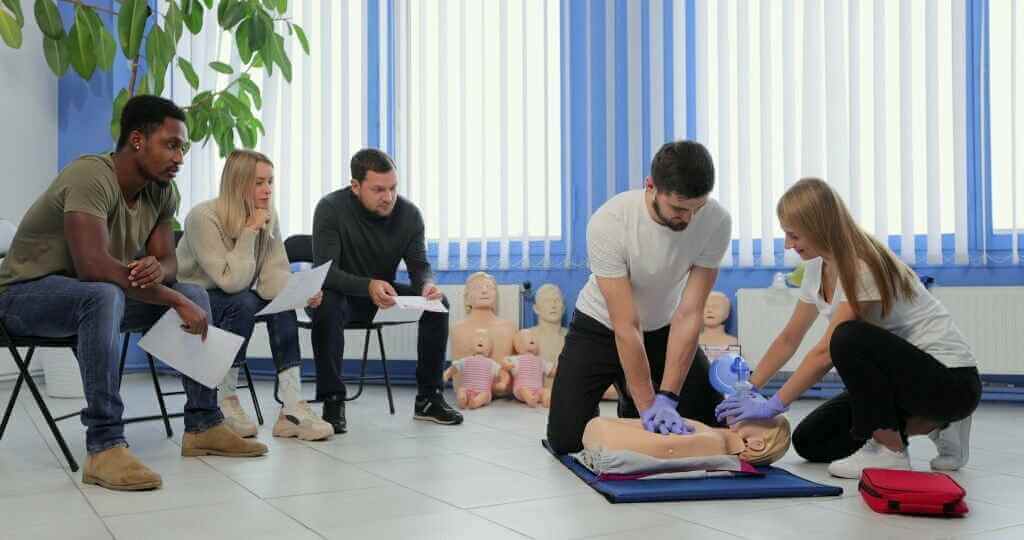Life is unpredictable, and emergencies can happen when we least expect them. In such critical moments, having the knowledge and skills to respond effectively can make all the difference. So, this article explores the significance of educating yourself for emergency situations, with a focus on the importance of first aid training courses.
Contents
1. The Unpredictability of Emergencies
Emergencies don’t come with a warning, and they can occur in various forms, from accidents at home to unforeseen incidents in public places. When faced with these situations, knowing how to react can be a lifesaver.
2. The Role of First Aid Training
a). Building Confidence:
First aid courses equip individuals with the confidence to take action during emergencies. Whether it’s administering CPR, dealing with burns, or managing a choking incident, the knowledge gained through first aid classes ottawa empowers you to act decisively.
b). Saving Lives:
In many emergencies, every second counts. As such, training provides you with the skills to provide immediate care while waiting for professional help to arrive. Your actions could be the difference between life and death.
c). Reducing Panic:
Panic is a common response in emergency situations. However, when you have the knowledge to assess the situation and provide appropriate care, it can help reduce panic, both in yourself and those around you.
3. Preparedness For Common Emergencies
a). Home Accidents:
Accidents at home, such as burns, cuts, and falls, can happen to anyone. And knowledge in first aid prepares you to respond swiftly and effectively, minimising the severity of injuries.
b). Workplace Incidents:
Many hours are spent at work, where accidents can occur. Having employees with emergency training on-site can be invaluable in promptly addressing injuries until professional medical assistance arrives.
c). Outdoor Adventures:
Whether you enjoy hiking, camping, or other outdoor activities, accidents can happen far from medical facilities. First aid skills become indispensable when enjoying the great outdoors.
4. Community Resilience
a). Being A Good Samaritan:
Knowledge gained from first aid courses allows you to be a Good Samaritan in your community. You can assist strangers in distress, potentially saving lives and fostering a sense of unity.
b). Family Safety:
When emergencies strike, your family’s safety is of paramount importance. As such, these courses ensure that you can provide immediate care to loved ones in crisis.
c). Contribution To Public Safety:
Individuals with proper emergency training contribute to public safety by being prepared to assist in emergencies, making communities more resilient and secure.
5. Emotions In Emergency Situations
During emergencies, emotions run high. Fear, anxiety, and uncertainty often accompany these situations. As such, emergency training not only imparts technical skills but also teaches how to remain calm and composed, offering emotional support to those affected.
6. The Importance of Comprehensive Training

Emergency training goes beyond basic knowledge; it encompasses a comprehensive understanding of medical emergencies and the practical skills needed to address them. A well-rounded first aid course typically covers the following areas:
a). Cardiopulmonary Resuscitation (CPR):
CPR is a life-saving technique used to revive individuals in cardiac arrest. The course teaches you how to perform CPR correctly, increasing the chances of survival.
b). Bleeding Control:
Knowing how to control bleeding is crucial in many emergency situations. Emergency training includes techniques for managing bleeding effectively.
c). Choking Response:
Choking can be a life-threatening situation, particularly for children and the elderly. First aid courses teach you how to assist choking victims and clear their airways.
d). Fracture And Injury Management:
Learning how to immobilize fractures and provide initial care for various injuries is an essential part of the training.
e). Recognising Medical Conditions:
First aid courses help you recognize the symptoms of common medical conditions like heart attacks, strokes, and allergic reactions, allowing for prompt action.
f). Psychological First Aid:
In addition to physical injuries, first aid courses often cover psychological first aid, which involves offering emotional support to individuals in distress.
Conclusion
The power of knowledge in emergency situations cannot be overstated. Emergency training is an invaluable tool that empowers individuals to respond effectively, potentially saving lives and reducing the impact of injuries.
Being prepared for the unexpected is not just a personal benefit but a contribution to community safety and resilience. So, take the step to educate yourself through first aid training; it’s an investment in your own well-being and the well-being of those around you. In times of crisis, knowledge truly is power.




